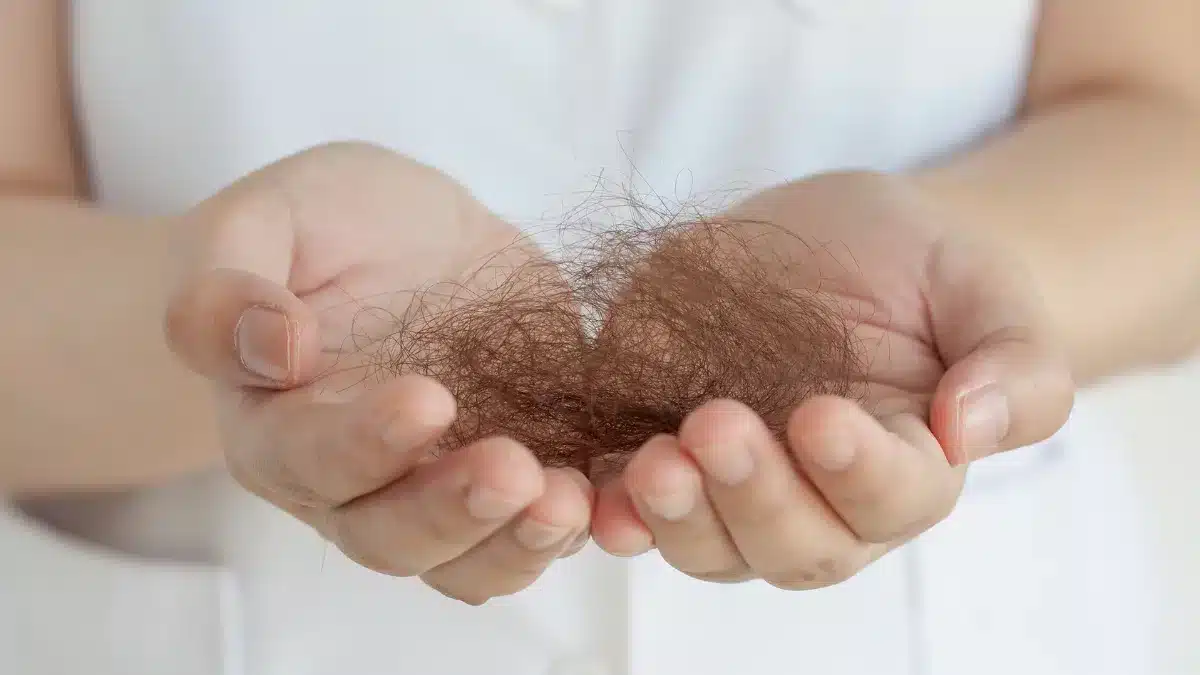Hair Loss as a Vegan: Understanding the Connection and Practical Solutions
Hair loss, medically known as Alopecia, can be distressing for anyone experiencing it.
While hair loss is commonly associated with genetic factors, diet can also play a crucial role.
For vegans, maintaining a well-balanced diet that meets all nutritional requirements is essential for overall health, including hair health.
If one fails to do so, nutritional deficiency may lead to hair loss problems.
This article will discuss the connection between hair loss and a vegan diet and offer solutions to promote healthy hair growth.
Why is my hair falling out when I’m vegan?
The vegan diet is centered around plant-based foods, eliminating all animal-derived products, including meat, dairy, and eggs.
This diet offers numerous health benefits, such as:
- Improved heart health
- Weight management
- Reduced risk of chronic diseases
However, apart from the benefits, it can pose challenges when meeting specific nutrient requirements essential for hair health.
Here are some of the potential reasons why you are having hair loss as a vegan:
Protein deficiency

Hair is primarily composed of a protein called Keratin.
Some vegans might find it challenging to consume adequate amounts of high-quality protein, especially if they do not plan their meals carefully.
If you consume insufficient protein, it can lead to hair thinning and weakened hair strands.
Vitamin B12 insufficiency
Vitamin B12 is mainly found in animal products, such as:
- Meat
- Fish
- Poultry
- Eggs
- Dairy products
Although some plant-based sources like fortified foods and nutritional yeast are available, getting enough B12 can be problematic for vegans.
Iron and zinc intake
Iron and zinc are essential minerals for hair growth.
The vegan sources of these nutrients, such as legumes, nuts, and seeds, might not be as bioavailable (nutrient consumption by the body) as animal-based sources.
Thus, it may lead to hair loss issues.
Omega-3 fatty acids
Omega-3s are essential for maintaining scalp health and reducing hair loss.
Vegans may rely on plant-based sources like flaxseeds, chia seeds, and walnuts, which provide a form of omega-3 called ALA.
However, the body may not efficiently convert ALA into the more beneficial forms (EPA and DHA).
And as EPA and DHA have shown to be effective in promoting hair growth, their deficiency can be a hindering factor.
Risk factors
If you are a vegan and also relate to the following factors, it can increase your risk of hair loss as a vegan.
- Started veganism as a crash diet: Severe caloric restrictions, fad diets, or crash diets can deprive the body of essential nutrients, leading to temporary hair loss
- Stress: Chronic stress can also contribute to hair loss. However, the reasons are not well understood
- Genetics: It’s important to note that genetics can also play a significant role in hair loss. If you have a family history of Alopecia, being a vegan might not directly cause hair loss, but it can worsen the condition
How to stop vegan hair loss?

If you’re experiencing hair loss as a vegan, consider the following steps:
- Increase protein intake: Ensure your diet includes a variety of plant-based foods rich in proteins, such as legumes, tofu, tempeh, quinoa, and seitan
- Omega-3 supplementation: Consider taking algae-based omega-3 supplements that provide DHA and EPA, the more bioavailable forms of omega-3 fatty acids
- Nutrient-rich foods: Incorporate nutrient-dense foods into your diet, such as leafy greens, broccoli, sweet potatoes, berries, and citrus fruits, to boost your overall nutritional intake
- Avoid crash diets: Drastic caloric restrictions or rapid weight loss can trigger temporary hair loss, so don’t try veganism as a fad diet
- Manage stress: Practice stress-reduction techniques like meditation, yoga, or regular exercise to maintain a healthy mind and body
- Consult a professional: If you experience severe or prolonged hair loss, seek advice from a healthcare professional or a registered dietitian with vegan nutrition experience. They can help identify any nutritional deficiencies and provide personalized guidance
Takeaway
Hair loss can be a concerning issue for vegans, as a poorly planned plant-based diet can lead to nutritional deficiencies affecting hair health.
Protein, Vitamin B12, Iron, Zinc, and Omega-3 fatty acids are crucial nutrients that, if lacking, may contribute to hair loss problems.
However, with proper attention to diet and lifestyle, vegans can promote healthy hair growth.
Ensuring a well-balanced diet rich in plant-based proteins, managing stress, seeking professional advice, etc., are practical steps to address the issue effectively.
Prompt action and a holistic approach are essential in preserving hair health for a fulfilling vegan lifestyle.
Frequently Asked Questions
Why am I experiencing hair loss as a vegan?
Hair loss as a vegan can be attributed to potential nutrient deficiencies, particularly in protein, Vitamin B12, Iron, Zinc, and Omega-3 fatty acids. Inadequate intake of these essential nutrients in a poorly planned plant-based diet may lead to hair thinning and weakened strands.
How do vegans keep their hair healthy?
Vegans can maintain healthy hair by ensuring a well-balanced diet rich in plant-based proteins from legumes, tofu, tempeh, quinoa, and seitan. They should also consider supplementing with algae-based omega-3s, incorporating nutrient-dense foods like leafy greens and fruits, and managing stress through meditation or exercise.
Do vegans struggle with hair loss?
Vegans may experience hair loss if they fail to meet essential nutrient requirements, such as protein, Vitamin B12, Iron, Zinc, and Omega-3 fatty acids, through a poorly planned plant-based diet. Addressing these deficiencies with proper nutrition and lifestyle choices can help prevent or reduce hair loss in vegans
WowRx uses only high-quality sources while writing our articles. Please read our content information policy to know more about how we keep our content reliable and trustworthy.






